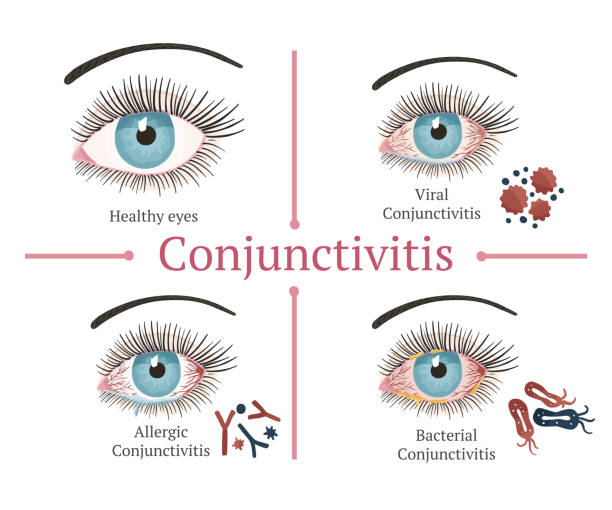Goa is abuzz with excitement as vintage bike and car owners, users, collectors and fans are decking […]

WATCH OUT FOR CONJUNCTIVITIS!
Aug 05- Aug 11 2023 August 4, 2023The country is in the eye of an outbreak of conjunctivitis. We catch up with DR AMIT DIAS of the Department of Preventive & Social Medicine at the Goa Medical College & Hospital. . This week Goan Observer team decided to find out about conjunctivitis which many people are prone to contacting nowadays. Our expert passes on information here which will be useful to you and keep you in the pink of health. Learn what you can do to keep yourself safe from the infection of conjunctivitis.
QUESTION: Doctor let’s start with the very basic, what is Conjunctivitis?
DR AMIT DIAS: This condition is commonly called “sore eyes” or sometimes “pink eye” or “dolle” in Konkani. It is an inflammation of the thin transparent membrane that covers your eyeball and the inner surface of your eyelid called the conjunctiva. This could happen due to various reasons such as irritation (soap, eye lens, chemicals), allergy (pollen, dust, smoke) or an infection (bacteria, virus). It makes the eye look red or pink. It is a contagious disease and it is common to have such outbreaks during the monsoon months. Currently, there is an outbreak of conjunctivitis in various parts of the country and we also have an outbreak in Goa.
There is a need for awareness. It is a mild condition, but it is often surrounded by misconceptions that need to be addressed.
Q: What are the common misconceptions?
A: There are several myths surrounding sore eyes. Here are some of them:
You can get sore eyes by looking at a person: This is not true, you can never get sore eyes by looking at another infected person’s eyes.
Only children get sore eyes: The fact is that anyone can get it. You can get it again even if you had the infection in the past. We often see it in children because they catch it in school from other children. They are also more likely to rub their eyes or not follow hand hygiene.
Sore eyes are always contagious: No, there are various causes for sore eyes or pink eye and not all are contagious. Allergy and irritation can cause sore eyes and it’s not contagious.
You don’t have to see a doctor if you get sore eyes: It’s true, that like a common cold, the condition is self-limiting. However, there are situations where the infection is severe and one has to see an ophthalmologist or a health care provider.
Q: What is the duration of sore eyes?
A: It can range from 4 to 15 days, depending on the severity of the viral or bacterial infection and the medical treatment.
Q: What are the common symptoms of sore eyes?
A: It’s viral conjunctivitis, it’s common to have a red eye, with watery discharge. In bacterial infections, both eyes can get affected and the discharge is thicker and sometimes greenish-yellow in color. If it’s due to an allergy, there will be itching and redness. One may notice puffiness of the eye and photosensitivity (sensitivity to light). In rare situations, you may have vision loss, fever, etc, in which case you need to visit your ophthalmologist. If a new-born gets the infection or the infection lasts for more than 2 weeks, please see a doctor.
Q: How does conjunctivitis spread?
A: In the case of infectious conjunctivitis the fluids from the eye of an infected person are highly contagious. It can be passed on through contaminated fingers, linen, clothes or other shared items such as remotes, combs, stationary, etc. One must keep a distance from people affected with conjunctivitis to avoid the catching the infection.
Q: Doctor, what should one do if one gets sore eyes?
A: Stay at home during the infective phase which is when the eyes are watering. This will help in preventing the disease from spreading to others and halt the outbreak. A few tips:
- Wash your hands frequently with soap
- Wash your eyes a few times a day, especially if there is any discharge
- To relieve itching, do warm or cold compress. Do not rub your infected eye.
- Keep your clothes, bedsheets, linen, towels, etc., separate from others
- Do not share eye make- up
- Do not wear contact lenses
- Avoid eye strain – avoid watching television, or mobile phone for too long.
- Wipe all shared devices that you touch, such as remote phone cutlery, etc.
- Don’t put a patch over your eye. It may worsen the infection
- Do not enter the swimming pool with sore eyes.
In case you have seen a doctor, follow the treatment prescribed. Your doctor may give you some eye drops to relieve the irritation or treat the infection. The treatment is given depending on what is causing the conjunctivitis.
Children can go back to school once the watering, itching, pain, and tearing has stopped.
Q: What is your message to our readers?
A: Do not panic, but do try and do your bit to prevent the spread of the infection as it does lead to absenteeism and loss of attendance in school. Do keep an eye on the disease and consult your doctor. Reports state that this time the number of cases are more than three times the usual number of conjunctivitis. We need to keep the disease under surveillance and take measures. The administration could consider closure of schools temporarily if the outbreak is spreading out of control. Do take care of your eyes.
















